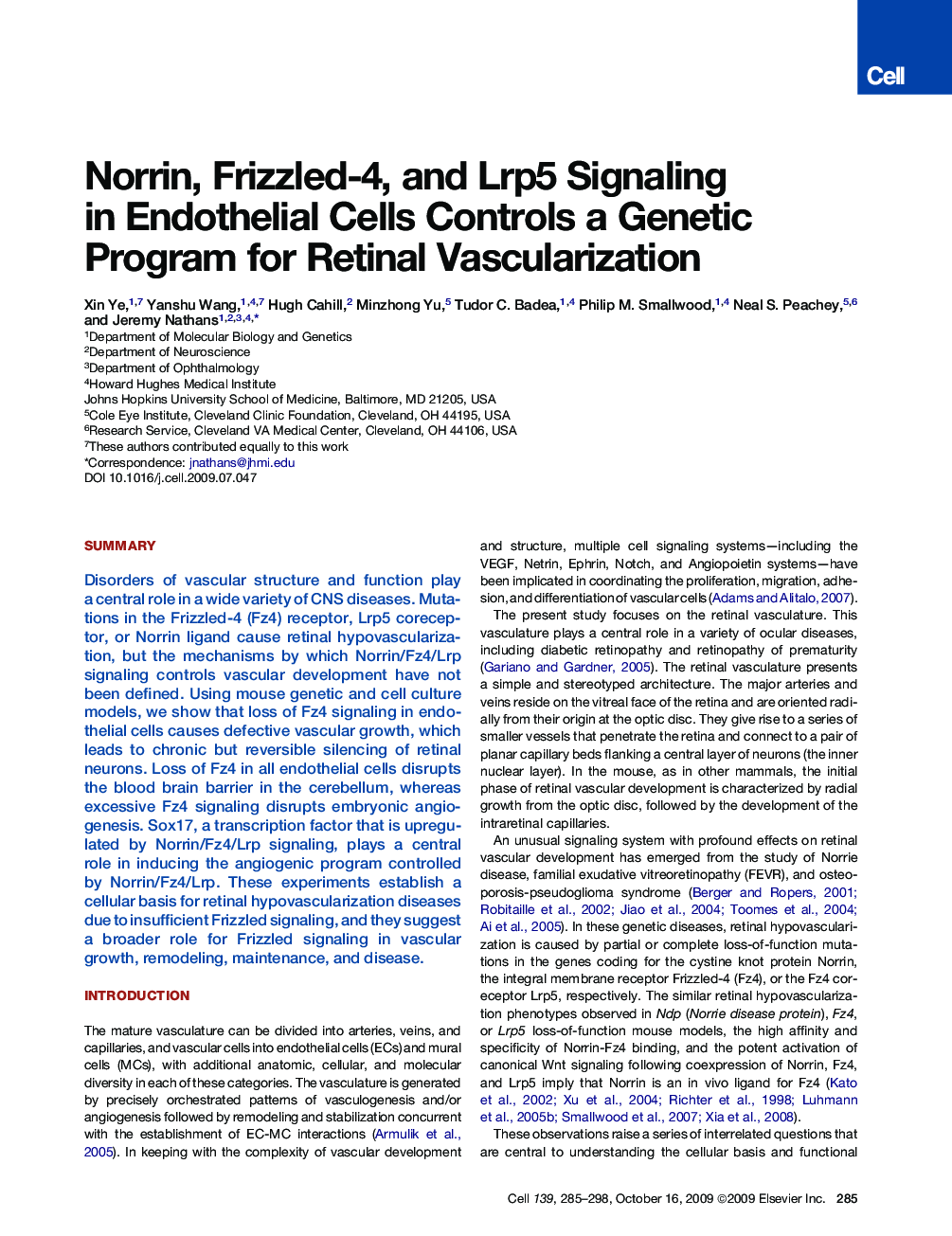| Article ID | Journal | Published Year | Pages | File Type |
|---|---|---|---|---|
| 2036815 | Cell | 2009 | 14 Pages |
SummaryDisorders of vascular structure and function play a central role in a wide variety of CNS diseases. Mutations in the Frizzled-4 (Fz4) receptor, Lrp5 coreceptor, or Norrin ligand cause retinal hypovascularization, but the mechanisms by which Norrin/Fz4/Lrp signaling controls vascular development have not been defined. Using mouse genetic and cell culture models, we show that loss of Fz4 signaling in endothelial cells causes defective vascular growth, which leads to chronic but reversible silencing of retinal neurons. Loss of Fz4 in all endothelial cells disrupts the blood brain barrier in the cerebellum, whereas excessive Fz4 signaling disrupts embryonic angiogenesis. Sox17, a transcription factor that is upregulated by Norrin/Fz4/Lrp signaling, plays a central role in inducing the angiogenic program controlled by Norrin/Fz4/Lrp. These experiments establish a cellular basis for retinal hypovascularization diseases due to insufficient Frizzled signaling, and they suggest a broader role for Frizzled signaling in vascular growth, remodeling, maintenance, and disease.
